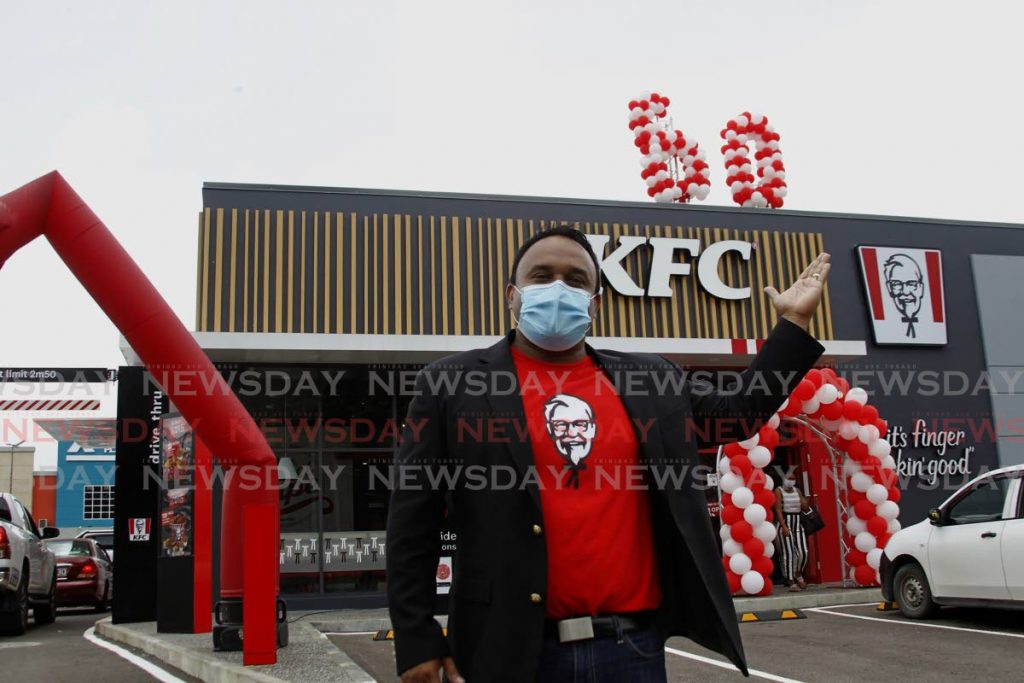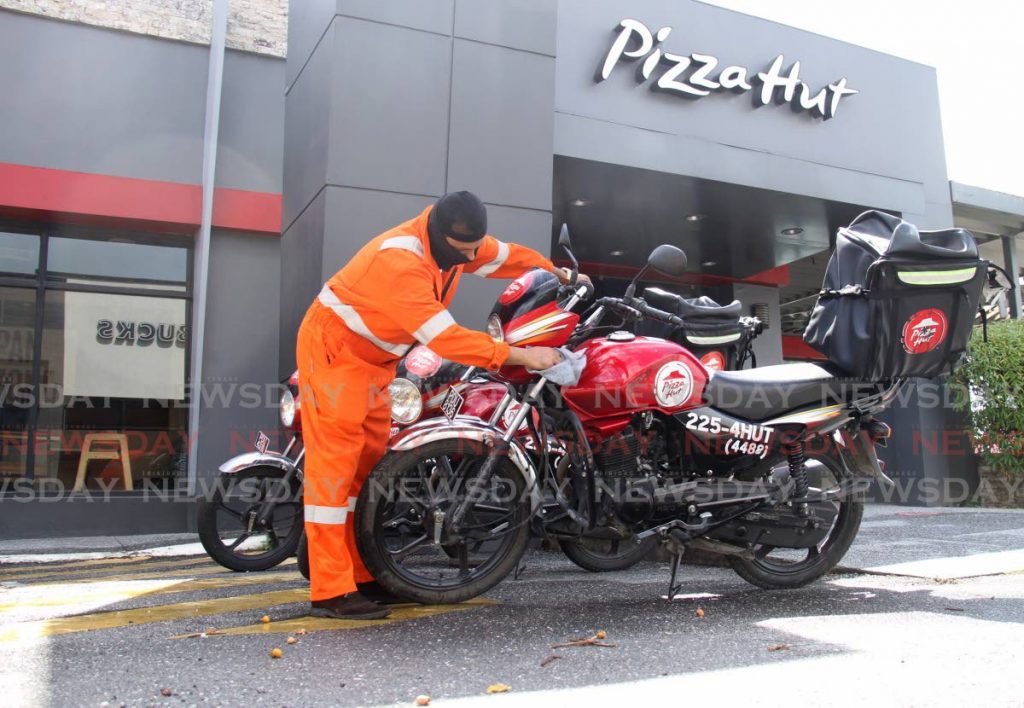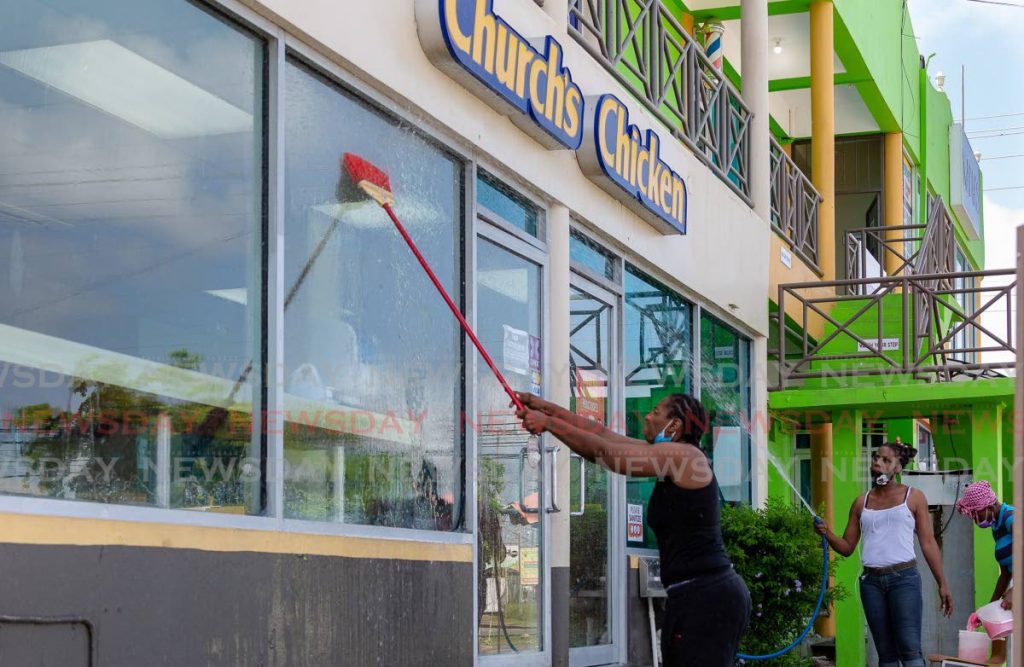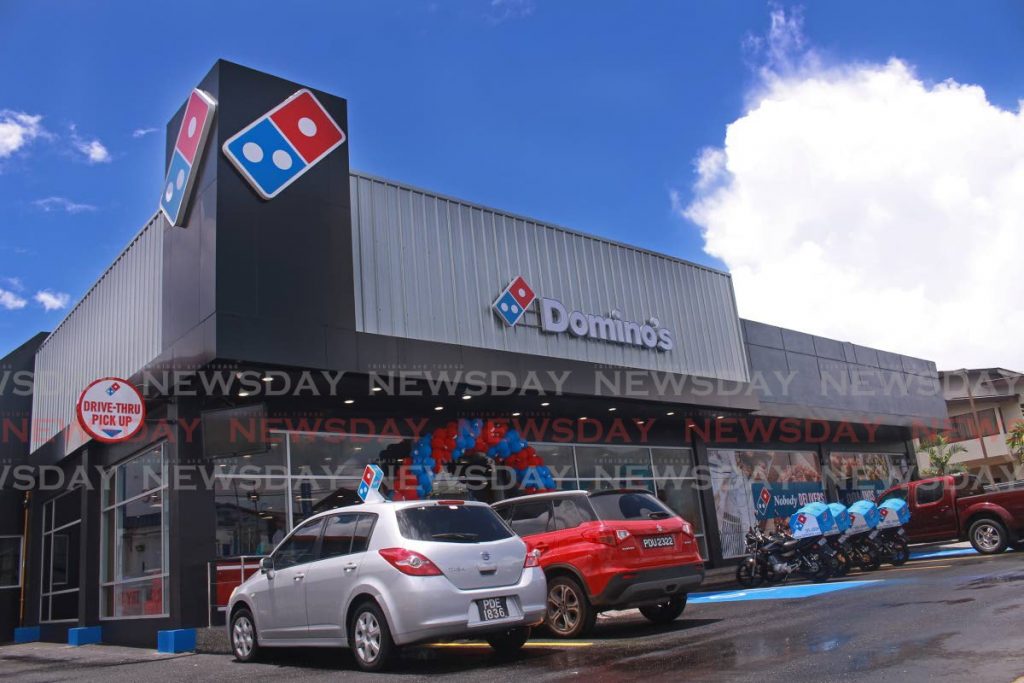With costs rising, will fast food franchises super-size prices?

Last week, people all over TT were licking their chops as they couldn’t wait to get their hands on their favourite fast foods after months under lockdown.
Some were surprised that at least one quick service restaurant, KFC, raised prices by just over $2 and adjusted their menus. But fast food overall is set to cost more, according to leading franchise holders in the quick service industry. Some franchises are now looking at their menus to see how they can still bring value for money while maintaining profits at a time when most businesses are struggling to survive.
The bottom line is, soon, people will have to fork up a little more dough for their on-the-go meals.
Why? The short answer is covid19. Financial shocks due to restrictions resulted in a rise in costs along the value chain. However, there are many factors that affect the way fast food franchises set prices and as these factors change so does the price.
KFC announced upon its re-opening on July 19, that it increased the prices of some items on their menu among them the Boss Meal, up from $40 to $42, and the Big Deal, increasing as well by $2.05 from $29.95 to $32.
Roger Rambharose, KFC vice president, admitted that KFC, and by extension franchise holder, Prestige Holdings Ltd (PHL), was not immune to the effects of covid19.
“It has had significant impacts on all our financials,” he said.
In 2020, PHL lost $18 million, even with a record start of more than 50 per cent growth in profits in the first quarter.
“If not for the pandemic it would have been an excellent year.”
PHL in the first half of 2021 incurred a loss of $20 million, with only one month of the lockdown included in the accounting.
“As we look forward to the end of our financial year in November, it is going to be tough,” said Rambharose.
But KFC, which has 60 branches, is not be the only PHL franchise looking at its prices. Other PHL franchises such as Pizza Hut and TGI Fridays are considering similar adjustments. TGI Fridays has an even greater challenge as it is heavily dependent on in-house dining and bar but is now limited to a takeaway service.

Simon Hardy, CEO of PHL, which employs over 3,000 people, said the global demand for raw materials, and higher prices for them, led to higher costs locally.
For example, with a greater demand for clean energy, products such as biodiesel are becoming more desirable. With a rise in the demand for corn, a key element in biodiesel, there is less supply for feed manufacturers.
“That would carry up the price for feed and grain and thus carry up the price of chicken,” Hardy explained.
According to the Ministry of Trade and Industry, the average price of poultry per pound went up by just under 20 cents in the past month, with the price being $7.14 in May, and $7.33 in June; and just under $3 since December when the price was $4.43 a pound. Chicken, which sells at $6.90 to $7.20 a pound, was sold at $6.50 to $6.80 earlier this year.
Feed prices have also increased, with pellet up from $85 to $90 a bag, crack corn from $162.50 to $170 a bag, and layer feed up from $209 to $218.
Anthony Sabga Aboud, director of Global Brands Ltd – owners of the local Rituals, Pizza Boys chain, and franchisee of Church’s Chicken – also said because of economic struggles of the past 18 months, as well as the increased cost of doing business for quick service restaurants, the company is reviewing the prices of its products and services.

“We are still reviewing our cost structures and looking at restructuring our menus across the board,” Sabga Aboud said.
He said aside from food inputs, packaging, transport and freight costs have all risen and will contribute to price increases of quick service products.
Franchises also have commitments to their parent companies. Sabga Aboud said franchisees must follow policies and guidelines of the parent company.
According to Businessnewsdaily.com, franchise holders pay an initial fee ranging from US$10,000 to US$100,000, then marketing and royalty fees which range from four to 12 per cent of the total revenue of the franchise.
Franchisedirect.com says it would cost between US$241,000 to US$2.7 million to buy into a KFC franchise depending on certain factors.
KFC franchises fall under two categories, non-traditional and traditional. Non-traditional outlets are smaller than the traditional ones and have different costs attached to its purchase.
Some of the fees include opening costs, insurance, deposit fees, training expenses, real property expenses utility deposits and business licenses.
Still, franchise deals differ depending on the franchise. Hardy said KFC, while supported by the brand and its practices, recipes and menus, gets it ingredients and raw materials from local sources – the chicken from Arawak, and the boxes come from Print-a-Pack.
Another franchise under PHL – Starbucks – has a different deal. Starbucks, instead of local suppliers, is supplied by its parent company abroad.
“So, they set their prices for raw materials,” Hardy said. “There has been some inflation, but they have made their adjustments as well.”
Owners of the Domino’s Pizza and Pita Pit franchises, Omar Hadeed and Daniel Fakoory, said they have similar arrangements with the parent company for Domino's which provides their supplies and thus can manage the cost of operating locally. They also have what is called territorial rights over the Domino's brand for the Caribbean.

“With Domino’s Pizza, we import directly from Florida through the parent company. We do see fluctuations on a monthly basis – it would go up or down a few percentage points. But because of the parent company the fluctuations are more controlled. We buy from our ‘big brother’ and in return we get protection from certain value chain shocks,” Fakoory said.
Pita Pit, a Canadian-based franchise, is similar to KFC in that it uses local suppliers for their main ingredients. But Fakoory said because of the types of produce – tomatoes, lettuce, cabbage etc – they were able to reduce cost because of how readily available these products are.
Fakoory added that meats were holding at a steady rate for them.
“There has been an increase in chicken, but we are willing to absorb that cost.”
“It seems like every corner you go on you see a vegetable stall,” he said. “As more people lose income, they are turning to farming small crops to supplement their income. And that creates a greater availability for the produce we use.”
Franchise owners said limited access to foreign exchange locally has also affected the cost of doing business, but some companies work with third parties who broker with foreign currency traders, so their needs are met.
One issue, Fakoory said, that was affecting their ability to grow was the rising cost of construction materials. With the price of construction materials up 25 per cent, it is costly to expand their franchises.
However, Fakoory said they would continue with a rigorous expansion programme which will see the establishment of two Domino's restaurants, one in Brentwood Mall, Chaguanas, and another in Arima, and two Pita Pits, one in Arima and another in Piarco.
For the most part, parent companies have been supportive of their franchises locally. PHL has maintained a good relationship with the KFC international franchise, YUM, which has helped with relief regarding royalties.
“Our international franchise YUM understands covid19 on all the markets they operate within. We have worked hand-in-hand with them to ensure we continue to have a strong business relationship in the future,” Rambharose said.
He added that the successful opening of KFC’s 60th location at Xtra Plaza, Sangre Grande further demonstrates PHL’s commitment to the brand in TT.
Sabga Aboud’s Pizza Boys which has its own franchises in St Kitts and St Lucia also had to work with their franchisees regarding the payment of royalties.
Ultimately each franchise must look at their business modules and see if there is a need to adjust their prices.
“For us that just means less profits for the company,” Fakoory said. “If we were to try to alter production it could affect the quality of the product. And we have no intention of doing that.”


Comments
"With costs rising, will fast food franchises super-size prices?"